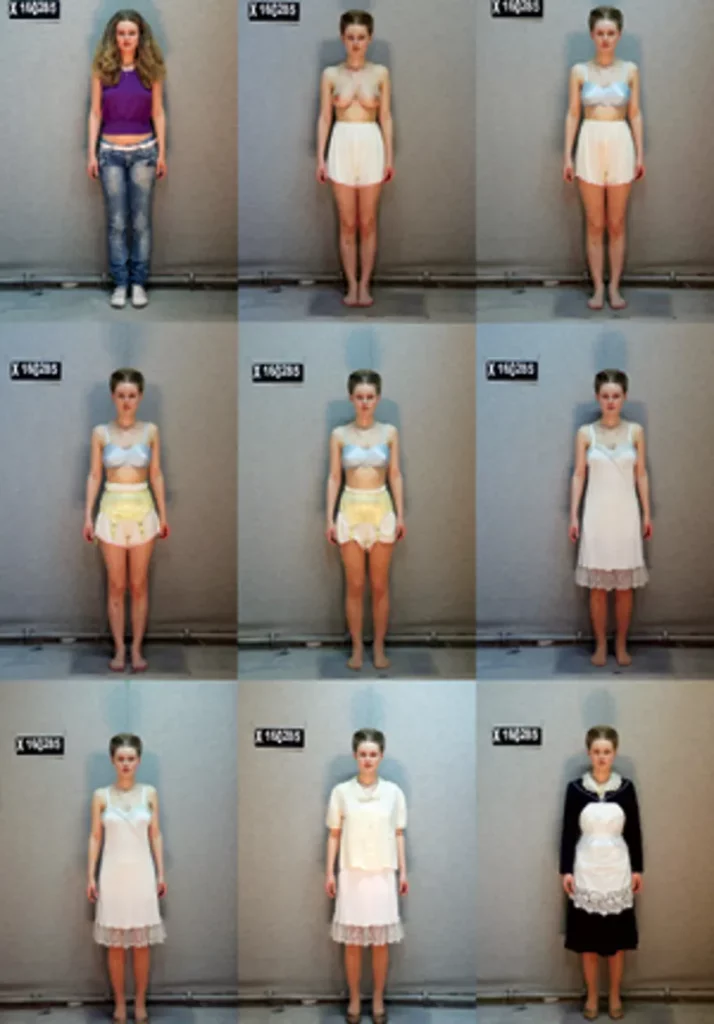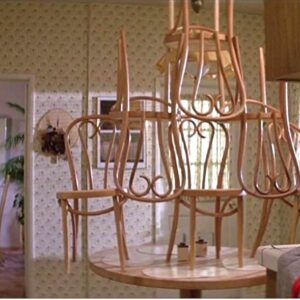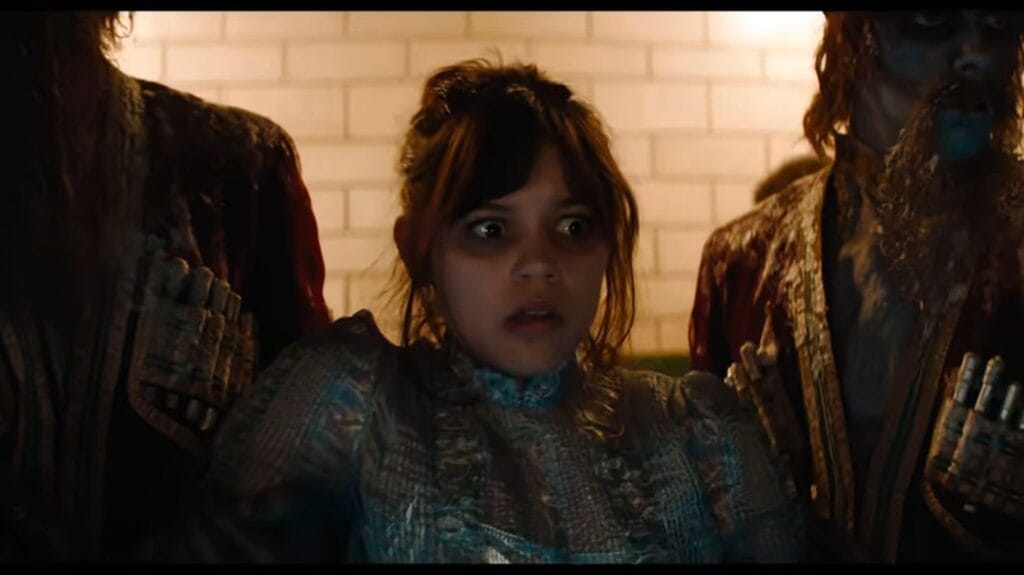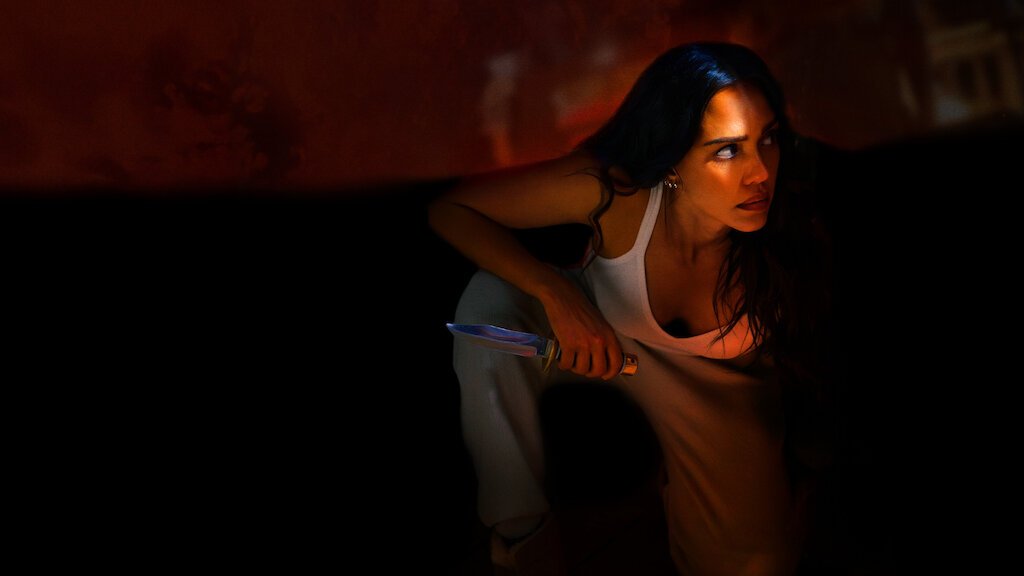DAU is a highly controversial film project that has been in the works for over a decade. The project is a fictionalized portrayal of the life of Soviet physicist Lev Landau, who was a recipient of the Nobel Prize in Physics. The film’s director, Ilya Khrzhanovsky, has described it as an “experiment in total cinema,” with a cast and crew that lived and worked together in a re-created Soviet research institute for over two years.
Dau Degeneration 18+ from DAU Website
One of the most talked about aspects of the project is the “DAU Degeneration” version of the film, which is labeled as “18+” due to its explicit content. This version of the film includes scenes of graphic sexual content, drug use, and violence, and has raised questions about the ethics of depicting such content onscreen.

A secret Soviet Institute conducts scientific and occult experiments on animals and human beings to create the perfect person. The KGB general and his aides turn a blind eye to erotic adventures of the director of the Institute, scandalous debauches of prominent scientists and their cruel and insane research. One day, a radical ultra right-wing group arrives in the laboratory under the guise of test subjects. They get a task – to eradicate the decaying elements of the Institute’s community, and if needs be, destroy the fragile world of secret Soviet science.
Official Website DAU
Critics have also raised concerns about the treatment of the cast and crew during the filming of DAU. Khrzhanovsky has been accused of creating a cult-like atmosphere on set, with reports of actors being forced to live in character 24/7, and being subjected to psychological manipulation and abuse.
The DAU art project – A Controversial Art Experiment
Despite the controversy surrounding the project, DAU has received some positive reviews from film critics. The film premiered at the Berlin Film Festival in 2019, where it won the festival’s top prize, the Golden Bear.
DAU is a highly ambitious and controversial art project, which includes a film and a multimedia installation that was created over a decade. The project is a fictionalized portrayal of the life of Soviet physicist Lev Landau, the cast and crew lived and worked together in a re-created Soviet research institute for over two years. The project raised ethical questions about the depiction of explicit content and the treatment of cast and crew during filming. It was never completed and can only be seen in its current form by visiting the DAU Institute in Kharkiv, Ukraine.
A Replica of the DDR Wall
The DAU project, an art event produced by Susanne Marian and directed by Ilya Khrzhanovski, plans to build a replica of the DDR Wall in Berlin on October 12th. The premiere of the DAU course and a week-long social experiment will take place behind the kilometer-long fake wall. The replica wall is 3.60 meters high, 1.20 meters wide, weighs over two tons, and is made of 900 segments of concrete, the same as the DDR original. The wall will be built in one night around a large area between the Spree bridge, Unter den Linden, and Bebelplatz including the State Opera, Hedwigskathedrale, Bauakademie, and Schinkelplatz. However, there are currently no permits for the project, and it is unclear how it will be executed.
Gerald Ponesky, responsible for the spectacular art, film, and theater project, has hired a team of 250 workers for the day of the wall’s construction. The wall has been named “Otto” internally, which sounds nicer and distances it from the DDR original with its bloody history. Ponesky, who grew up in the DDR, does not want to build a new wall.
The creators of the art spectacle stress that the wall is not intended to reconstruct the DDR. The wall will be used to create a “city installation” and an “experience space” and it is not intended to be a visual reference to the Soviet Union or DDR, according to the festival director Thomas Oberender. The creators want to create a “world outside of reality,” as producer Susanne Marian says.
The DAU project is a 700-hour multimedia project that was shot between 2009 and 2011 in a closed-off set in Ukraine. So far, 13 feature films and several series have been cut from the footage. The project has been controversial, with criticism of its concept and the use of a replica of the DDR wall.
A film set as a microstate, where the filming apparatus itself becomes a means of control and surveillance: “The set was a panopticon. Microphones were hidden in lamps, like in Stalin’s USSR, so that Khrzhanovsky could film from anywhere,” reports journalist and author Michel Idov. When he visited the film set, he had to exchange his clothing, including underwear, for historical costumes like all other visitors and participants. Nothing should remind of the reality of the 21st century.
Schirn.de
About director Ilya Khrzhanovskiy

Ilya Khrzhanovskiy is a Russian film director known for his experimental and controversial film project, DAU. He studied at the All-Russian State Institute of Cinematography and made his debut feature film “4” in 2004, which received several awards and nominations, including Best Director at the Buenos Aires International Festival of Independent Cinema and Grand Jury Prize as Best New Director at the Seattle International Film Festival. DAU, his second production, has been in development since 2006 and has raised ethical questions about the depiction of explicit content and the treatment of cast and crew during filming. The project can currently be seen in an immersive multimedia installation at the DAU Institute in Kharkiv, Ukraine.
DAU is Khrzhanovsky’s second production, and it has been in the making since 2006. The DAU Rooms at the Théâtre du Châtelet were devised by him as a precursor to the release of DAU in Paris.
DAU Cinema: Where to watch Dau movies?
DAU by Ilya Khrzhanovsky is now available online for all fans of modern art who were unable to attend the Berlinale.You can watch the DAU project “Nora Mama” , “Natasha” and “Degeneration,” which was not shown at the festival in Berlin.
The story centers around the wife of a successful scientist, who welcomes her mother to visit her on the closed territory of a Moscow institute. In candid conversations, the complexities of Nora’s family life are revealed.
In conclusion, DAU is a highly controversial film project that has raised ethical questions about the depiction of explicit content onscreen and the treatment of cast and crew during filming. While the film has received some positive reviews, it remains to be seen if the project will ever be completed and released to the public.




























